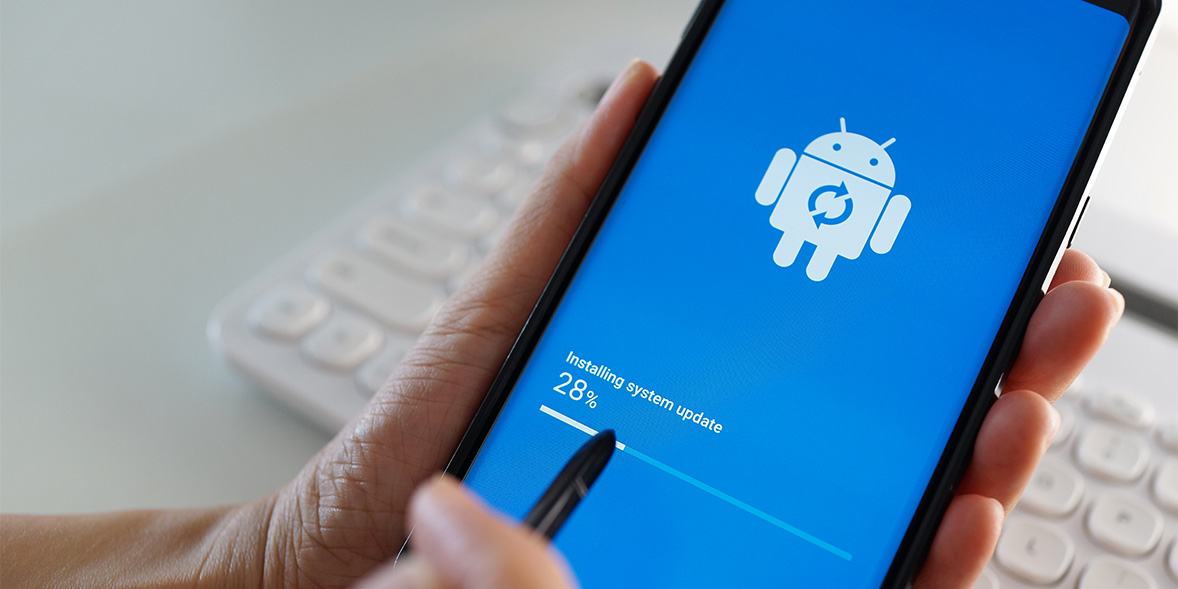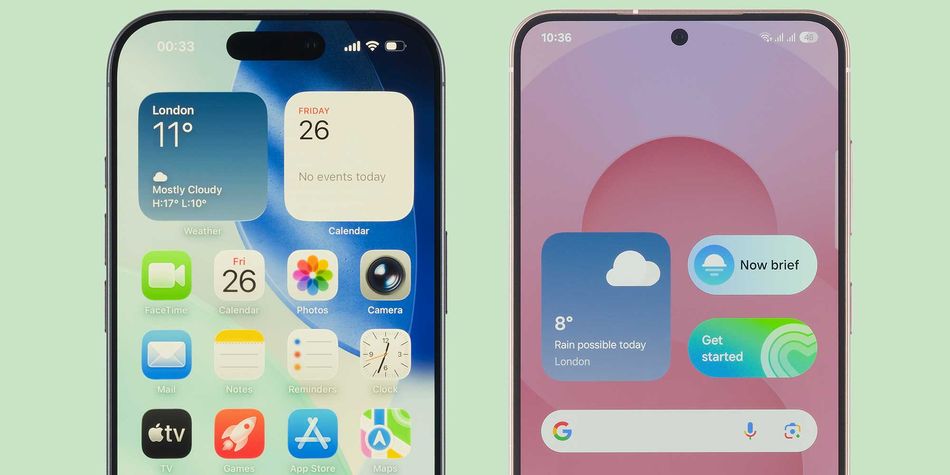By clicking a retailer link you consent to third-party cookies that track your onward journey. This enables W? to receive an affiliate commission if you make a purchase, which supports our mission to be the UK's consumer champion.
Why Samsung Galaxy S9 owners should start looking for a new phone

A number of sought-after phones, including the Samsung Galaxy S9, have recently fallen out of security support. This leaves them more vulnerable to be exploited by hackers.
Any device that is connected to the internet needs regular security updates to keep your personal information secure. However, no device is supported forever and it's currently up to the manufacturers to choose how long they'll support a phone for. Phone manufacturers guarantee different support periods, with some offering a measly two years from a phone's initial release.
Which? mobile phone reviews include when each phone is suspected to lose support so you can choose a new phone with confidence. We recommend you don't buy a phone with less than one year of security support left.
Some new, cheaper phones from Samsung have now been released with five years of security support. This means you can use these phones securely for longer.
Read on to find out which popular phones have lost security support, and which new Samsung releases qualify for five years of updates.
Find out more about the importance of security updates and when your phone might lose support in our guide to mobile phone security.
Samsung Galaxy S9 and S9+ no longer receiving updates

The Samsung Galaxy S9 and Galaxy S9+ were both released in 2018 as Samsung's high-end flagship phones. With powerful displays and high-spec cameras, they remain popular handsets today. However, we no longer recommend these phones because they don't receive important security updates from Samsung anymore, which protect your phone from existing and emerging threats that might compromise your data.
If you own one of these devices, it's frustrating to upgrade if you're happy with the phone. But in fact, Samsung offers a longer support period than most manufacturers on its phones. All Samsung phones released from 2019 receive four years of security support from the phone's initial release date, and in February 2022, Samsung announced that some phones would get five years of support. This is a step forward in security support policies for Samsung phones, but Apple is still the manufacturer that supports phones for the longest, with some iPhones getting over six years.
Phones included in Samsung's five-year policy includes the flagship ranges Galaxy S21 and S22, and the Galaxy Fold3 and Flip3. But the announcement also included some select A series phones - which are a lot cheaper than the others in the list - and Samsung has recently released A series phones that qualify.
Samsung Galaxy A53 5G

The Samsung Galaxy A53 5G qualifies for five years of security updates from Samsung. It's a mid-range phone that has a slim frame with curved edges, and a long camera notch on the rear of the phone that holds the quad camera system. The large, 6.5-inch Super AMOLED display has a high level of brightness (800 nits), and a 120Hz refresh rate. It comes in four awesomely-named colours: 'awesome blue', 'awesome black', 'awesome white' and 'awesome peach'. The 128GB of memory should be enough for most, but you can buy a 256GB version or use a micro-SD card up to a huge 1TB if you need more space. Its run on a 5nm Octa-core processor and it has a 5,000mAh battery.
Find out if this phone is as 'awesome' as its colours in our full Samsung Galaxy A53 5G review. Or compare contract deals on the Samsung Galaxy A53 5G.
Samsung Galaxy A33 5G

The cheapest in the line-up with five years of security support comes in the Samsung Galaxy A33 5G. It looks very similar to the Samsung Galaxy A53 5G; with the same colour options and the same number of cameras, but there are a few differences. The processor isn't quite as powerful and it has a lower 90Hz refresh rate on the screen, plus the camera lenses have less mega-pixels. Nonetheless, it seems to have some key benefits. In comparison to its predecessor, Samsung claims it has a 28% faster performance core. It also comes with 128GB of storage, but you can expand on this with a micro-SD card. It has a 6.4-inch Super AMOLED display and is fuelled by a 5,000mAh battery.
Find out if all this power delivers without compromises in the Which? Samsung Galaxy A33 5G review.
Other popular phones that are no longer updated
The Samsung Galaxy S9 and S9+ aren't the only phones to have lost security support recently. If you own one of these phones, we recommend looking to upgrade when you can.
- Samsung Galaxy A8
- Google Pixel 3a
- Google Pixel 3a XL
- Realme X50 Pro 5G
- Huawei P Smart (2019)
Which? reviews will display a security notice if we suspect a phone is out of support. Browse our mobile phone reviews to see which are affected.
Which? removes Best Buys for short shelf life phones

There's no point buying a phone that is about to fall out of security support. That's why we remove Which? Best Buys from phones that are suspected to have less than one year of security support left.
We've removed Best Buys from the following handsets for this reason, so while there's no need to get rid of them quite yet, it's probably best you don't buy one for your next phone.
- Samsung Galaxy S10
- Samsung Galaxy S10+
- Xiaomi Mi 11 5G
- Xiaomi Poco F3 5G
Which? calls for longer support periods
Support periods are improving, with Samsung and Google supporting phones for five years for the first time, and OnePlus, Oppo, Realme and Xiaomi supporting some models for four years. But unsupported phones still pose a huge problem and consumers are not being provided with enough information to make informed choices. Consumers risk having their personal data exposed and the short phone lifecycles will only add to the country's growing e-waste problem. We believe brands could and should do more.
At a minimum, we want manufacturers to provide:
- At least five years of software and security updates across all their devices from point of release, regardless of popularity or cost.
- In-device notifications about when update support will cease, so that consumers can make more informed decisions about next steps.
- More regular update support from when manufacturers are first made aware of patches, particularly for those using the Android operating system.
- Greater clarity about actual updates policies at time of purchase and on a publicly available website, so consumers are fully informed about update provision before they buy.
If manufacturers fail to provide adequate and transparent update support then the government will need to intervene in the interests of smartphone users.
Tech tips you can trust - get our free Tech newsletter for advice, news, deals and stuff the manuals don't tell you




